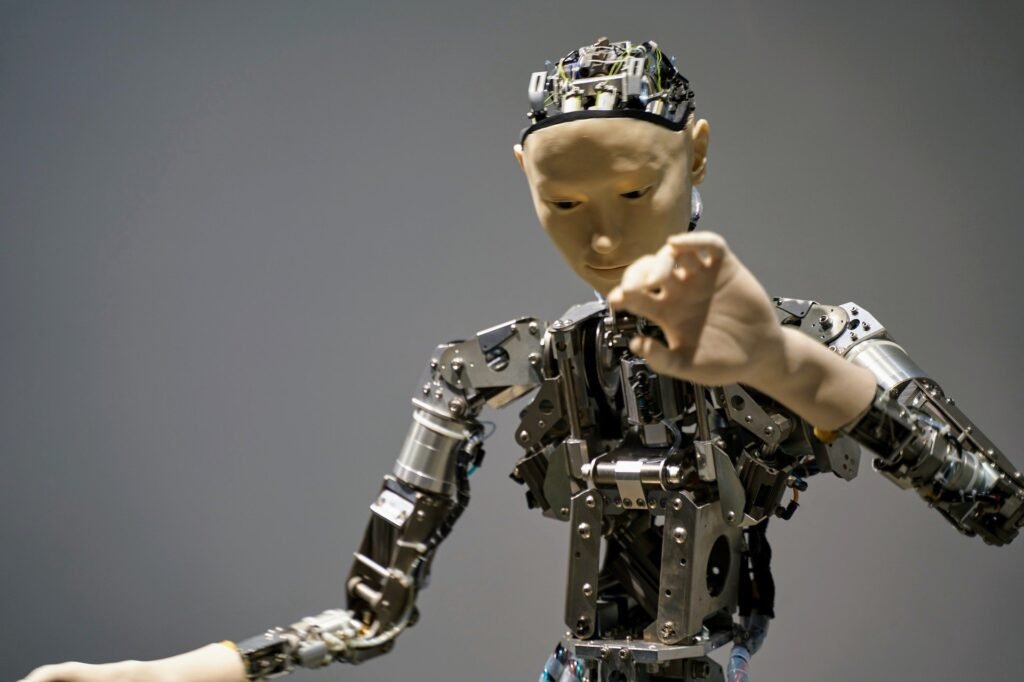McKinsey outlines creative ways (in a recent paper) that businesses may use artificial intelligence (AI) to reap benefits. Get ready, because some may shock you.
The way in which companies in a wide variety of sectors conduct their business is being revolutionised by artificial intelligence. Businesses can automate tasks, resulting in improved levels of productivity and efficiency, if they implement artificial intelligence (AI). In its research titled “McKinsey Technology Trends Outlook 2022,” the consulting firm McKinsey took an in-depth look at AI and the numerous uses it has, many of which extend outside the realm of technology. Take a look at the following several big industries that will be significantly impacted by AI:
AI CAN EVOLVE THE METHODOLOGY IN EDUCATION
Because of the pandemic and the trend toward distant learning, students and educators have been obliged to accept new technology in recent years, which has resulted in a dramatic transformation in the education sector. Despite this, AI has the potential to assist enhance the way students learn as well as the instruction they get. The majority of curriculums in schools are quite prescriptive and don’t pay attention to the unique educational requirements of each student.
Students will have the ability to have more personalised learning programmes thanks to the introduction of AI, which will be focused on the students’ own learning demands and progress.Robert said “When you start to look at where individualised students are, just as you can with personalised medicine by looking at your own health history, as opposed to looking just a population of people, you can then begin to really bring a more tailored pace and path of learning for different subjects to that student.”
PACKAGED AND RETAIL GOODS
Retail and the packaged goods businesses can both benefit from the use of AI by better understanding customer trends in order to better adapt their supply and increase their profits. By analysing massive data sets, identifying patterns, and providing buyers with personalised recommendations, machine learning (ML) can assist businesses in better understanding customer spending habits and preferences.

“One thing that helps both the retailer and the consumer goods company is by making sure we’ve got the right products on the right shelf at the right time. So that when you go to the store, what you’re looking for is there,” he added.
Businesses will be able to keep their shelves filled with any of what consumers want if they comprehend the data, which will allow the businesses to earn more sales and the customers to have their requirements satisfied. When a retailer does not have enough of a product in stock, it is a loss for both the retailer and the customer.
AGRICULTURE
By enabling precision agriculture and automating some activities, artificial intelligence has the potential to make the agricultural sector more efficient. The term “precision agriculture” refers to the practise of adapting agricultural inputs to the specific requirements of a farm. AI and ML make this feasible by gathering data and recognising trends that enable farmers better understand what should be implemented and how much of it should be applied.
“Think about using data to find patterns that enable precision. For example, providing just the right amount of fertilizer to the right place in the field at the right time, which then optimizes both the cost for the farmer, but also the yield on the other side,”Roger Roberts, McKinsey Expert Partner, said in a recent interview.
A number of the machinery that is typically managed by farmers can be automated; for instance, farms can make use of tractors that do not require drivers. Farmers have the flexibility to refocus their attention on other, more important duties, thanks to the automation of certain jobs, while the work is still accomplished in an effective manner. The use of AI in agriculture is not intended to be a substitute for human labour but rather a supplementary tool.
“Sometimes AI can replace tasks, but not jobs. And sometimes the task was the part of the job that was more drudgery, It can be unburdening people in particular jobs, to let them focus on the part of the job that matters most.” ” Roberts said.
AUTOMATION IN HEALTHCARE
The application of data to inform diagnostics and the use of software that can automatically recognise pathology could be beneficial to healthcare systems. It is highly doubtful that patients will ever desire to replace the attention and skill of their doctors with automated processes, but the application of AI in the healthcare industry is an indication of how new technology may enhance current processes rather than supplanting them. The interpretation of the data and the diagnosis will still require the expertise of medical professionals and other qualified personnel; AI will merely assist these individuals in performing their jobs in a more effective manner.

Here Robert says “What’s exciting to me is not replacing human labor, but really in the health care area giving our health professionals superpowers, think about all the data that you could aggregate and bring to the provider, not as a replacement for their answer, but as a suggestion. Then it’s up to the professional to take that into their own practice.”
ACCELERATING REAL ESTATE BUSINESS
Automated property recommendations are beneficial not only for buyers and sellers of real estate but also for real estate brokers. This will assist buyers in locating the property that best meets their needs, which in turn will assist sellers in locating the buyers who are most interested, so efficiently accelerating the process. According to the paper, artificial intelligence can also help execute market evaluations, which can assist developers in managing risk and market volatility, along with optimising their investment returns.

Anywhere, a real estate services provider based in the United States that is the owner of prominent real estate industry brands such as CENTURY 21, Coldwell Banker, and Sotheby’s International Realty, has implemented AI in an effort to improve the efficiency of their operation.

